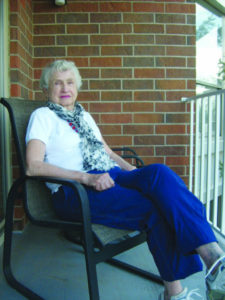
How to Take Care of Captives
I think that we in the peace movement are so accustomed to looking at the need for action that we tend to let slide the various bits of upbeat news in the world of international politics. The Star Tribune of Aug. 25, however, published an almost half-page article entitled, “Kurds try friendly approach to punishing ISIS (Syrians).”
The article begins with a description of Syrian prisoners in a Kurdish prison making paper flowers. The reason for such kind of action for these three-year-imprisoned men is the hope of reconciliation and reform. A Kurdish judge explains, “If I sentence a man to death, I am spreading hate. If you take revenge, people will be radicalized. But with reconciliation we are sure we can finish this problem.”
The Kurdish guards have had the responsibility to accommodate, feed and guard the Syrian captives now held in prisons or internment camps. The prisoners number 1,000 Syrian fighters and 900 of their wives and children from 40 countries.
The Kurds are looking for international help, but so far, no nation or international organization has been willing to help.
Do Genocide and Slavery Ever Become History?
Too many book reviews I find online, in magazines or books are too long for my use. So, I end up writing reviews of reviews. Following is my review of a book review written by Deborah Lipstadt and published in The New York Times. The book is entitled, “Learning from the Germans” and it was written by Susan Neiman.
Twenty years after World War II, Communist East Germany claimed that East Germany was a post-war antifascist state and all the former Nazis were in West Germany, and West Germany insisted that only the Third Reich’s
leadership knew of the mass murders. However, in the heart of Berlin today there is a statue, a memorial to the six million Jews who were murdered by Germans without mention of East or West Germans.
Born and raised in the South, author Susan Neiman moved to Germany to write this book. She found eerie similarities between the response of first generation, postwar Germans to their evil past and of many Americans, particularly Southerners, to theirs. Germans, almost uniformly, rejected any comparison. They suggested that what they did was far worse than slavery. Americans also uniformly rejected the comparison. Neiman closes her book with a quote from William Faulkner: “The past is never dead. It’s not even past.”
























